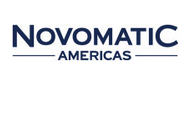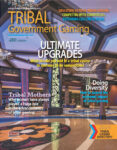
The advent of internet gambling and the ongoing spread of commercial casinos will likely cut into a slumbering American Indian casino industry, analysts predict, diminishing the economic and social progress tribes are achieving through gambling.
Perhaps more important is the concern, shared by many tribal leaders, that the shifting gaming landscape will erode principles of sovereignty and self-governance crucial to the preservation of indigenous communities.
Coming Competition
This is particularly true as tribes, faced with increasing competition for the wagering dollar, wrestle with options to pursue expanded gambling either as commercial ventures or government enterprises promoting tribal tax exemptions and regulatory authorities.
“We need to really be careful,” says Leslie Lohse, vice chairwoman of the California Tribal Business Alliance, a coalition of three tribes. “Tribes can take a business approach, but they’d better make sure their governmental sovereignty is protected.
“We don’t know what will become of the gaming business in four or five years. But we know our sovereignty will remain the mainstay of our relationship with the federal government.”
Industry analysts predict online wagering and expansion of commercial casinos and racetrack casinos will diminish the $26.5 billion Indian gambling industry, impeding tribal efforts to grow and diversify their economies, strengthen their governments and preserve languages and traditions.
“The expansion of commercial gaming licenses across the U.S. is clearly a threat to tribal gaming,” consultant Grant Eve told tribal leaders at the National Indian Gaming Association winter summit. New York, Illinois, Florida and Kentucky are among states considering legalizing casinos.
Meanwhile, draft federal legislation to legalize and tax online poker has come under fire from tribal leaders who claim the bills favor commercial gambling companies and ignore tribal government tax exemptions and regulatory authorities.
And a recent Department of Justice opinion that online gambling other than sports betting does not violate the Wire Act appears to open the door to online state lotteries, yet another threat to tribal casinos.
“The situation is so fluid, I don’t think anyone really knows where the major threat is coming from,” said attorney Glenn Feldman, a specialist in Indian law who testified on internet gambling before the Senate Committee on Indian Affairs. “Federal legislation that ignores or cuts the tribes out completely is as much of a threat as state lotteries. Which is worse, I can’t tell you.”
Playing Defense
The challenge to tribal leaders is not simply to protect Indian Country’s nearly 30 percent share of the legal U.S. gambling market of casinos, racinos, card clubs and lotteries which, combined, generate more than $90 billion a year.
The greater challenge is to preserve Indian gambling in a manner that does not further erode political and legal principles that form the basis of tribal sovereignty and self-governance.
Fundamentals of sovereignty crucial to Indian nations—particularly the concept that government revenues are exempt from taxation—may be challenged by Congress and the courts if tribes pursue online wagering and other economic opportunities as commercial business ventures rather than government enterprises.
“It does not appear legalization of internet gambling will have anything tailored to tribal sovereignty,” Kathryn Rand, dean of the University of North Dakota School of Law, told GamblingCompliance.com. “There won’t be a mechanism in federal or state legislation allowing tribes to exercise their sovereignty.
“Because tribes are not just commercial operators—in fact, they’re governments—I think it’s important that tribes weigh the policy issues, including the effects pursuing internet gaming will have on tribal sovereignty.
“While others would counsel tribes to be sure their technological capacity is ready to go, what we would argue is, ‘You’ve got to be sure this is the direction you want to take as a matter of policy and good governance.’”
The tribal share of the gambling market grew dramatically after passage of the Indian Gaming Regulatory Act of 1988. Tribal government casinos currently generate nearly as much annual revenue as commercial casinos, which according to the American Gaming Association won about $28 billion in 2011.
But the growth of tribal gambling stabilized with maturation of the largely rural industry and political and legal difficulties Indian governments face acquiring new lands off existing reservations.
The explosion of tribal casinos that spread to 28 states and today number about 440 facilities grew to a relative halt in 2007. Gambling revenues that year reached $26.1 billion, but have since leveled off.
Some tribes seeking to grow their markets have pursued off-reservation commercial casinos and racetracks that do not enjoy the tax exemptions and self-regulation components of tribal government gambling enterprises under IGRA.
The Chickasaw Nation of Oklahoma has acquired racetracks in Oklahoma and Texas, and the Mohegan Tribe of Connecticut purchased the Pocono Downs racetrack in Pennsylvania, operations that are subject to state taxes and regulations. The Seminole Tribe of Florida, in acquiring Hard Rock International, owns a number of tribal and commercial casinos.
Perception of Tribes Is Crucial
The status of tribes as domestic sovereign governments is written in the U.S. Constitution and confirmed in treaty agreements, and has been upheld by the U.S. Supreme Court.
But the ability of tribes to exercise self-governance rests largely with congressional Indian policy, which over the past 200 years has ranged from termination and assimilation to land allotment, to self-determination under the late President Richard Nixon.
The Nixon doctrine remains in force. But some tribal leaders are concerned the growing perception of Indian tribes on Capitol Hill is no longer that of indigenous, culturally rich governments, but business entities and purveyors of gambling.
“We have to be very careful of how we are perceived and what we are using our money for, and keep ourselves separate and distinguishable from corporations,” Lohse said.
Involvement in casino gambling by two-thirds of the 365 federally recognized tribes in the lower 48 states is blamed by many for congressional action and court rulings detrimental to Indian sovereignty.
IGRA’s requirement that tribes operating Las Vegas-style casinos enter into regulatory agreements, or compacts, with the states in which they are located is regarded by tribes as an affront to their governmental status.
The District of Columbia Circuit Court of Appeals, in a 2007 ruling involving the San Manual Band of Mission Indians, trashed a historic tribal exemption from the National Labor Relations Act, largely because most San Manuel casino customers are non-Indian.
And a 2009 U.S. Supreme Court ruling that the Department of the Interior should not place land in trust status for tribes not under “federal jurisdiction” in 1934 continues to play havoc with some 2,000 land/trust applications, only 20 of which involve casinos.
The court ruling in Carcieri v. Salazar is blamed on growing public opposition to a handful of new casinos off existing reservations, many by newly recognized, restored and landless tribes.
Many tribal leaders and lawyers believe the political and legal backlash against Indian sovereignty will continue if they do not take a hard-line, pro-Indian government position on federal and state legislation on internet wagering.
Internet Gaming: Commercial Or Tribal?
A profitable internet wagering scheme requires that tribes accept bets from off their reservations, a concept that runs contrary to IGRA, the federal law limiting tribal casino jurisdiction to land held in trust by the U.S. Department of the Interior.
As Congress drafts a federal scheme for online gambling, industry observers contend it is not politically realistic for tribes to press for tax exemptions and a regulatory or licensing role for the National Indian Gaming Commission, the agency that oversees tribal casinos.
Many tribal lawyers and lobbyists recommend that tribes pursue internet gambling as a purely commercial venture, ceding tax exemptions and regulatory authorities guaranteed under IGRA.
“The internet is not a tribal government gaming enterprise. It is not Indian gaming,” said a tribal attorney who requested anonymity. “Forget about IGRA and Indian gaming.”
Nevertheless, the attorney said it is important tribes remain competitive in online wagering to both maintain their share of the nationwide gambling market and preserve sovereignty.
“As a major player in a business, you need to be a participant to maintain your strength,” the attorney said. “That’s why it’s a sovereignty issue. Without their revenue and position in the gaming industry, tribes wouldn’t have much sovereignty.”
“Most tribal leaders don’t completely understand” the need to embrace the internet as a commercial venture, says Tom Foley, partner in Lowry Strategies, a Washington, D.C. government consulting firm.
“A handful of people do. They realize the internet is probably a commercial enterprise. The bets are being taken from off the reservation. It’s a business that they need to get into with the understanding it’s a commercial operation. It’s not Indian gaming.”
Should online wagering remain a state issue in the absence of federal legislation, industry analysts contend tribes would likely have to cede to state taxation and non-Indian regulations. Such is the case with the California Online Poker Association (COPA), a coalition of tribes and card clubs seeking intrastate online poker legislation.
But Indian advocates believe a federal scheme for nationwide internet wagering should allow some components of IGRA tax exemptions and regulations.
That’s the model being promoted by NIGA, the tribal casino industry lobby. A NIGA resolution approved in 2010 endorses “principles” for online wagering legislation that call for tax exemptions, the ability to accept off-reservation wagers and a regulatory role for NIGC.
“The principles involve using an IGRA model with a non-geographical overlay,” says Tom Rodgers, principal of Carlyle Consulting.
The NIGA model would give tribes a competitive tax advantage over commercial gambling companies. “That’s creating the tension,” Rodgers says. “Everybody is trying to align that architecture, and it is tough.”
Mark Van Norman, NIGA senior adviser, says Congress and Indian tribes should not concede long-held tenets of tribal sovereignty and self-governance, particularly the principle that tribal government revenues are tax-exempt.
He told a recent meeting of the Senate Committee on Indian Affairs that to do so could establish a dangerous precedent not just for the 238 tribes with casinos, but all the more than 560 federally recognized tribes and Alaska Native villages.
“What tribal governments are saying is we’re funding the essential government functions of schools, hospitals, water and sewer, roads, many times picking up the responsibility of the federal government,” Van Norman told the Senate committee. “We don’t want to see an overlay of federal and state dollars on that.
“There has been a history in this country that tribal governments—under the Internal Revenue Code—are not considered income taxpayers because we are governments. That’s an important principle for us to maintain. We’re concerned about maintaining our government status.”
Tribal governments under a federal scheme for internet gambling should be permitted the same tax exemptions as state government lotteries, Van Norman said.
A House Divided
There is little tribal consensus on methods of approaching internet wagering.
Several Indian governments are steadfast in opposition to any legalization of online wagering, fearing it will erode revenue from their casinos.
But a growing number of tribes believe it is inevitable online wagering will become widespread. Whether they embrace it as a commercial venture or a tribal government enterprise, it will soon be a part of their business portfolios.
“I’ve got clients all over the board on this issue,” Feldman says. “I’m not recommending anything.
“Internet gaming today, like Indian gaming 25 years ago, is complicated and controversial,” says Feldman, who successfully argued the landmark California v. Cabazon Indians case that led to enactment of IGRA. “But it is coming, and so tribal governments need to be smart and flexible in their thinking on the issue.”
Senator Daniel K. Akaka (D-Hawaii), chairman the Senate Committee on Indian Affairs, says tribes need to be a party to efforts to enact internet gambling legislation.
“Tribal concerns and priorities must be considered,” he says, “and tribal voices must be heard when judicial, administrative or legislative decisions are made on gaming because of its significant role in the economy of Indian Country.”


















